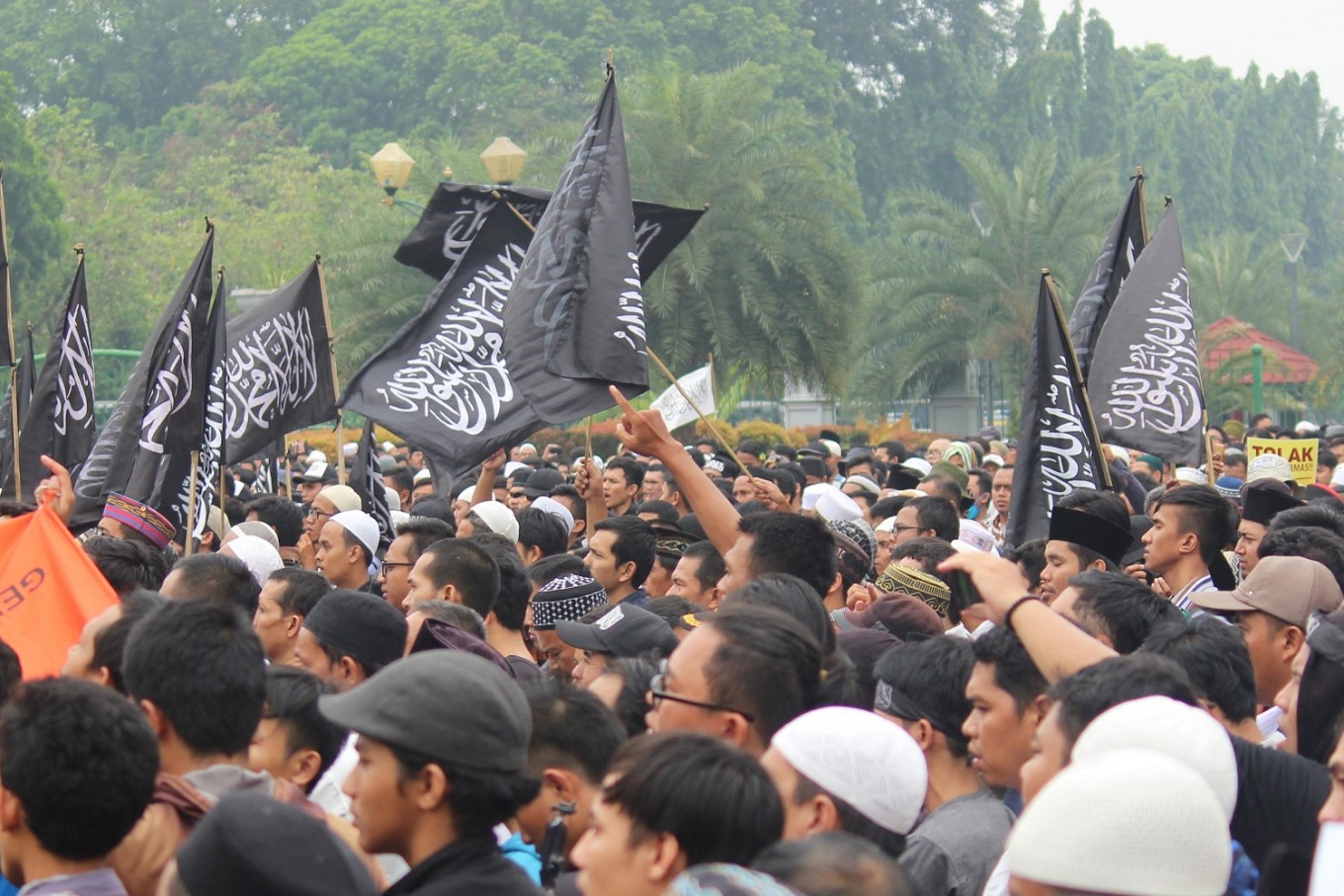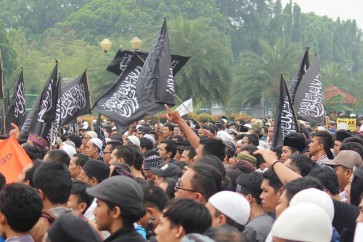Popular Reads
Top Results
Can't find what you're looking for?
View all search resultsPopular Reads
Top Results
Can't find what you're looking for?
View all search resultsLaw on mass organizations is merely about power
Strong security measures do not guarantee diminishing Islamic radicalism.
Change text size
Gift Premium Articles
to Anyone
P
resident Joko “Jokowi” Widodo recently issued a controversial regulation in lieu of law (Perppu) that revised the 2013 law on mass organizations (Ormas), in response to increasing Islamic radicalism and vigilantism. The targets are organizations believed to be spreading ideologies that contradict state ideology Pancasila and the Constitution.
This controversy divides those who believe the law is an effective way to protect society from intolerant groups and those who argue that the Perppu could lead to authoritarianism all over again.
Both camps, however, agree that there an increase in the number of vigilante groups and in Islamic radicalism. They also assume that a legal approach is needed to address that issue, but disagree on the legal measures.
Many analysis have shown that strong security measures do not guarantee diminishing Islamic radicalism. Its agents even appeared during the authoritarian regime. In Malaysia and Singapore, security instruments have been used mostly to silence opposition under the pretext of countering terrorism, similar to the Indonesian Subversion Law.
As the scholar Vedi Hadiz shows in his 2016 book on Islamic populism, violent and non-violent Islamic political movements seek solutions to political and economic discontent.
Under the New Economic Policy that absorbed rural MalayMuslims into the urban industrial sector, for example, Malaysia curbed Islamic radicalism.
In Turkey, the Islamic underground movement was diminished when the Justice and Development Party (AKP) — a vehicle for low- and middle-class Muslims — won power through elections.


















